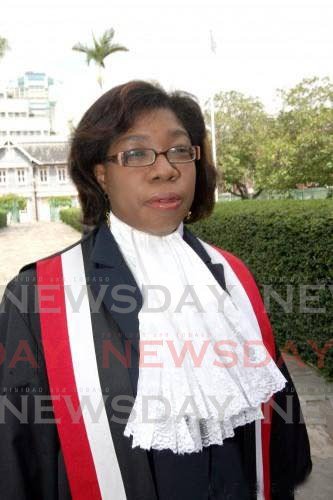Judge rules: State fails to prove 2012 case, so man acquitted

A TRINIDADIAN who was among four men – two of them Venezuelans – arrested in 2012 after the Coast Guard discovered five guns and a kilogramme of cocaine on board a pirogue, has been acquitted by a High Court judge.
On Wednesday, Justice Carla Brown-Antoine held that the State failed to prove beyond reasonable doubt that Bisham Ramlogan was in possession of five firearms, ammunition and cocaine found on the pirogue Sham on November 27, 2012.
In a written decision following a judge-only trial, Brown-Antoine said she was of the view that the evidence of the prosecution was “unsatisfactory,” and did not satisfy the court that Ramlogan was the captain or master of the pirogue.
Ramlogan was before her on a three-count indictment for possession of five guns – which included a Springfield Armory .45 semi-automatic pistol; a Taurus semi-automatic pistol; a Baretta 9 mm calibre semi-automatic pistol and two .38 special Smith and Wesson and Taurus revolvers – and possession of a quantity of ammunition and 471.4 grammes of cocaine.
The prosecution led evidence from seven witnesses that on November 27, 2012, the Coast Guard received certain information and left headquarters at Staubles Bay, Chaguaramas, where, five nautical miles south of Gaspar Grande island, they saw a 28-foot pirogue dead in the water.
There were four men on board, two of East Indian descent and two of Hispanic descent.
The officers searched the pirogue and found the guns and drugs in a compartment under the engine. The pirogue was escorted to Staubles Bay and the police and Customs and Excise Division were called.
In her decision, the judge said it was not contested that the the Coast Guard found the four men on the pirogue, or that the officers searched the vessel and found the guns and cocaine.
She said the three issues of contention were whether Ramlogan admitted he was the captain of the pirogue, whether a notice of seizure was served and whether, by signing the notice, the accused was admitting the contents of it and whether it amounted to his being the master of the boat.
Ramlogan’s defence was denial that he had control or knowledge of the firearms, ammunition and cocaine found on the boat.
Although he did not give evidence, his attorneys advanced that the prosecution’s case was inconsistent and contradictory as it related to his allegedly admitting to being the boat’s captain, and his signature on the notice of seizure was not an acceptance of the contents of the notice, but he signed as having received the document.
In her ruling, Brown-Antoine said there was no evidence that Ramlogan accepted the contents of the notice of the seizure, adding that signing was not an admission of its contents. She also held that it was only at the trial that the State indicated it was relying on the signature as an admission of its contents. But, she said, this was not supported by the evidence.
Having ruled that the notice of seizure was not an admission that he was the master or captain of the vessel and had not proven he was in possession of the firearms, ammunition and cocaine, she found Ramlogan not guilty on all three counts.
Ramlogan was represented by attorney Aaron Seaton. Veonna Neal-Munroe and Taterani Seecharan prosecuted.


Comments
"Judge rules: State fails to prove 2012 case, so man acquitted"